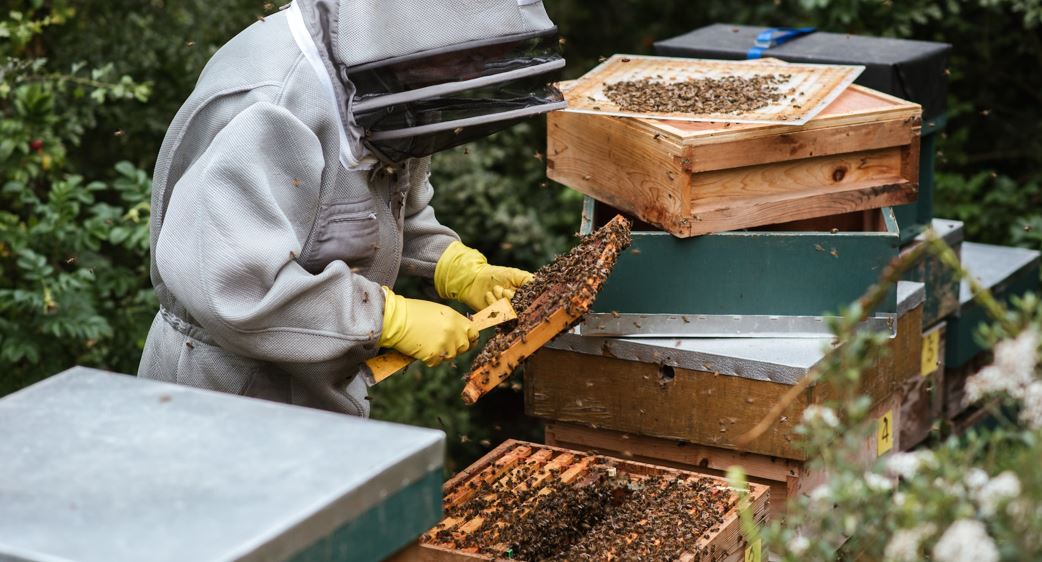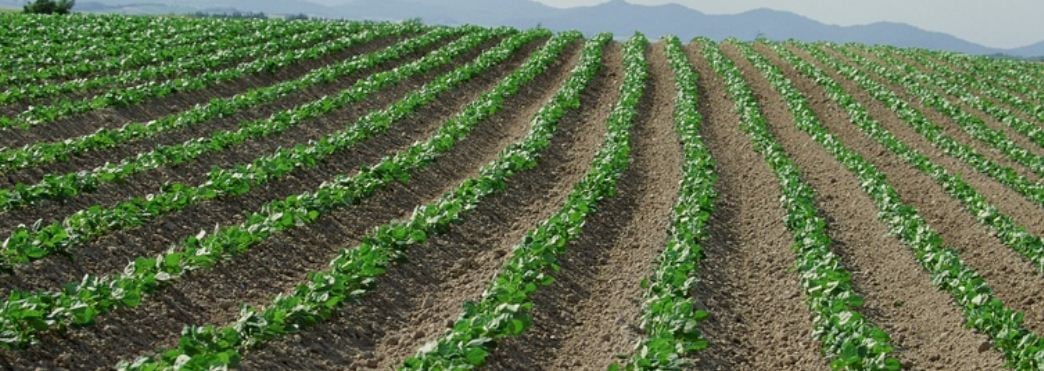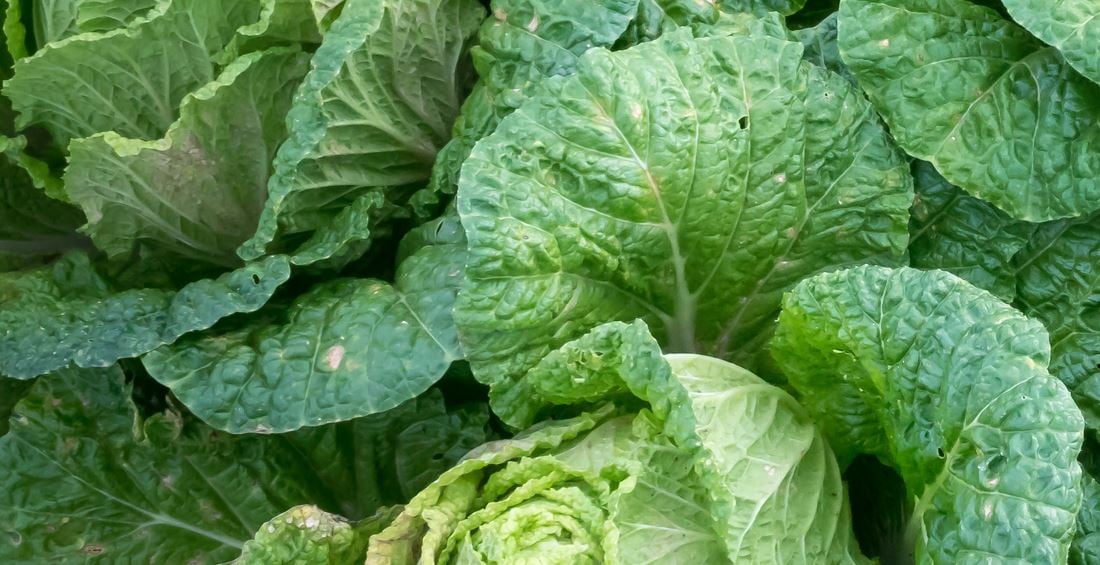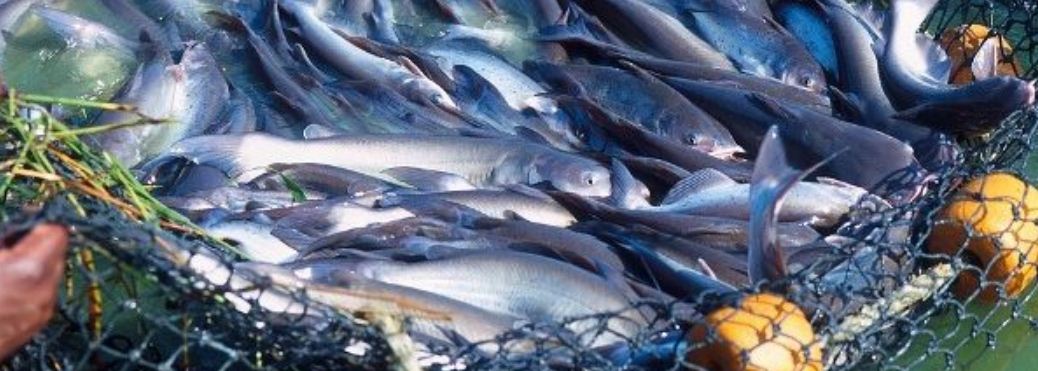How to Start a Profitable Bee Farming Business

Beekeeping, or apiculture, is a profitable and sustainable business. It provides farmers with honey, pollination services, and food. Beekeepers can grow more bees in less time than other methods and yield more.
Bee farming requires minimal capital and is an excellent way to diversify income streams. Plus, it's an environmentally friendly venture that provides many benefits for both humans and the ecosystem.
16 Ways How to Start a Lucrative Bee Farming Business
To begin a profitable bee farming venture, one must conduct market research and determine the type of honey bee species you will raise and the necessary equipment and facilities. Establishing partnerships with beekeeping associations and acquiring the required permits and certifications is also essential.
If you're considering starting a bee-farming business, here's what you need to know:
1. Start with research:
Before commencing a business, it is advisable to conduct extensive research. Explore the multiple varieties of bees, their conduct, and their evolution. The dynamic of large bee groups features one dominant bee and a multitude of worker bees.
They play an essential role in pollination, which helps plants grow and produce food for humans. You should also research the market demand for honey and other bee-related products in your area. You can attend workshops, take online courses, and read books on beekeeping to expand your knowledge.
2. Get the necessary equipment:
Beekeeping is a rewarding hobby that only requires little time or money. It's the perfect hobby for anyone looking to make a living from their hobby.
One can earn substantial income by keeping bees. Both online vendors and beekeeping equipment stores offer these products for sale. The well-being and safety of bees greatly rely on having quality equipment.
Beekeeping is a noble and ancient art passed down for generations. It is a relaxing, rewarding hobby that allows you to connect with nature.
Once you have your equipment and bees, it's time to set up your beehives. Place the hives in a location that is away from human activity but easily accessible. Ensure the packs are placed on a level surface and facing southeast to take advantage of the morning sun.
Bee farming requires several pieces of equipment to safely and efficiently manage beehives. Some of the essential equipment for bee farming includes:
(a). Beehive:
Beekeeping is a profitable and rewarding hobby. Many people interested in raising bees are interested in learning how to farm them. The equipment for bee farming includes a hive body, frames and foundation, top cover, inner cover, and guard.
(b). Smoker:
In today's world, beekeepers must inspect their hives to ensure the bees are doing well. For this, they need a tool that can produce smoke, which will cause the bees to gorge on honey and calm them down. Most bee smokers are cheap and simple in design.
(c). Bee suit:
A beekeeper's suit is a piece of protective equipment that includes a jacket, veil, and gloves. It is essential to wear this outfit when performing hive inspections because it prevents the beekeeper from being stung by bees.
(d). Hive tool:
The tool helps beekeepers remove propolis and wax from frames.
(e). Bee feeder:
Bees are nature's little pollinators. They help plants grow and produce fruits and vegetables, which would not be able to without bees. Bees also make honey, which many people love and rely on.
(f). Queen excluder:
What is a queen bee? A queen bee is a honey bee that breeds primarily in the hive and leads the colony. Unlike workers, who are female, queens are male. Queens come from one of two sources: swarms or eggs produced by older, long-lived worker bees.
One designated chamber contains a distinct bee that creates offspring using a small amount of the male bee's material. The young can transform into queen bees capable of procreation or worker bees that can't reproduce.
(g). Honey extractor:
A honey extractor is a machine that spins the honeycomb and removes the honey from it. This machine can extract honey quickly and efficiently. An uncapping knife is a tool designed for extracting honey from the beehive quickly and efficiently.
(h). Uncapping knife:
Several tools work for removing the wax caps from honeycombs before extracting honey from the comb. Standard tools include an uncapping knife, a syrup spoon, and a beekeeper's scraper.
(i). Bee brush:
A bee brush is an all-in-one tool for inspecting hives that you can use to prevent bee injuries, disperse bees with minimal disruption, and brush off the frames.
(j). Protective clothing:
Beekeepers have to work with bees in an enclosed space, which they do by harvesting honeycombs. However, these petite insects are capable of inflicting a painful sting. It is important to have protective clothing when working with bees to avoid any potential injuries.
(k). Pollen traps:
Pollen is an organic powdery substance produced by and spread by plants. It can be used as a bee source to help them make honey or to create other products like food, dyes, and medicines. However, it also threatens the environment and pollinators when collected incorrectly.
(l). Protective netting:
Protective netting helps protect the beehives from predators such as birds, rodents, and other animals. Net is also used for other purposes, such as keeping dust and leaves out of the hive.
(m). Wax foundation:
The wax foundation is an integral part of honeycomb construction. This foundation is made of beeswax and used to help the bees build their comb in the desired shape and size. It also helps to prevent mold growth on top of the honeycomb.
(n). Smoker:
To avoid getting stung while examining beehives daily, beekeepers utilize a smoker tool that helps calm the bees. When feeling agitated, the Smoker can assist in soothing the bees, concealing their scent, enticing bees, and encouraging them to abandon their abode.
(o). Honey jars and labels:
Honey jars are containers of honey that come in various shapes and sizes. These jars can be perfect for storing honey at home or for selling honey at a store.
(p). Honey refractometer:
A refractometer is an instrument used for the measurement of the moisture content in honey. The device has a prismatic glass tube and a light source sending light beams at different angles. Honey absorbs the light rays and changes color based on density levels and, thus, can be measured accurately.
3. Learn about beekeeping regulations:
Beekeeping is a popular hobby, but you can adjust it in many areas. Before deciding to pursue beekeeping as a hobby, you must know the guidelines and legislation in your vicinity.
When engaging in a significant job, receiving support from a competent resource or specialist is beneficial. Rules governing the amount and positioning of bee abodes could be applicable in specific locations.
To abide by the regulations for beekeeping, you must disclose the presence of your bees to your local beekeeping group and acquire authorization documents. Placement instructions for beehives may exist and require observance.
4. Choose a location:
Beekeeping is an ancient craft passed down through generations, but thanks to modern technology, it is easier than ever to get started. As a new beekeeper, you have many options for where to build your bees.
Look for an area with a good source of nectar and pollen, providing the bees with the necessary resources to produce honey. Avoid placing your beehives near areas with heavy pesticide use or other sources of pollution.
5. Start with a small number of beehives:
Starting beekeeping with only a few bees and not an excessive amount is significant. An excellent way to ease into beekeeping before moving on to a more extensive setup is to start with a smaller one, which can help you acclimate and feel confident. It's feasible to procure bees by contacting a nearby beekeeper or purchasing from a reliable bee vendor.
Be sure to choose a healthy and disease-free colony to ensure the success of your bee farming business. Bee farming has a relatively low start-up cost compared to other agricultural industries. You can start with just a few hives and gradually expand your business as your customer base grows.
Beekeeping is a popular hobby in many countries, with more than 1.5 million beekeepers worldwide. People tend to buy items manufactured from organic substances extracted from bees that inhabit the nearby area. The demand for honey and other bee-made goods has risen among a larger population.
6. Monitor the health of your bees:
Beekeeping is an essential and vibrant industry. Beekeepers are responsible for keeping honey bees alive and healthy. Monitoring the health of your bees is the best way to ensure their long-term success.
Swiftly intervene to prevent the transmission of illness and uphold the vitality of your bees when you detect any issues. The well-being of your bees should be your topmost priority. Take caution, remain vigilant for symptoms of disease or insects, and take necessary measures to prevent or remedy any issues.
Work with a veterinarian or other bee health expert to develop a comprehensive health plan for your bees.
Keeping bees can bring in substantial earnings, but it involves a lot of perseverance and dedication to excel in it. Persistence and determination are crucial to achieving success in your business. Initiate with a robust groundwork to guarantee everything remains secure.
7. Harvest your honey and other products:
The honey extraction process can be very time consuming and requires much effort. You'll need to break the comb apart, pour the honey out of each frame, strain the flame, and filter it. Finally, you'll need to bottle it so customers can purchase your product.
You can also sell other bee-related products, such as beeswax or propolis. Beekeeping is a year-round activity that requires consistent management. Ensuring your bee colonies are healthy requires frequent hive checks.
It aims to provide their health by checking if they are free from illnesses and pests and having adequate food and water—process by harvesting honey, extracting it from the combs, and processing it for sale.
8. Market your products:
Selling your honey and other bee-related products at local retailers is the best way to boost your business. You can start by creating a targeted list of merchants who cater to bee-related.
The "contact us" segment on the virtual store will guide how to make a purchase. Creating an appealing brand name and utilizing social media platforms or a website can significantly enhance product sales effectiveness. You can donate or sell your honey to nearby stores, food places, and other companies.
Marketing your bee products is essential for attracting customers and growing your business. Consider creating a website, social media accounts, and marketing materials highlighting your products' benefits and commitment to sustainable beekeeping practices.
9. Continuously educate yourself:
The environment benefits greatly from the presence of bees. They help pollinate plants, providing food for humans and other pollinators. And as beekeeping has evolved, so too have the practices and technology in beekeeping.
Attend workshops and conferences, read industry publications, and connect with other beekeepers to stay up-to-date on the latest trends and best practices. If you're looking for a profitable and environmentally friendly business, bee farming is an excellent choice.
Bee farming is a business that you can pass down through generations. By investing in your business now, you can create a legacy for your family and provide them with a source of income for years.
The beekeeping industry constantly evolves, so staying informed about new research, trends, and best practices is essential. Attend industry conferences and workshops, and stay connected with other beekeepers and industry experts.
10. Be environmentally conscious:
Beekeeping is an ancient practice, with the first beekeepers using simple tools like a hollow reed to extract honey from bee hives. Today, beekeeping practices have evolved with technology, and new devices like digital cameras and drones can be implemented.
With the help of these new technological advances, beekeepers can keep bees healthier for extended periods. Consider using natural pest control and disease prevention methods, and avoid using harmful pesticides or chemicals near your hives.
Bee farming is a sustainable and eco-friendly business. The environment benefits greatly from the presence of bees.
Bees are crucial pollinators for many plants, including fruits, vegetables, and nuts; without them, we impact our food supply. By keeping bees, you are helping to ensure our ecosystem's sustainability and contribute to our planet's health.
11. It's a profitable business:
To beekeeping, one must maintain bees and acquire their honey. Bookkeepers usually tend to e honeybees, although some may also cultivate other bee species, such as bumblebees and drones that do not sting.
Some beekeepers also raise mason bees or mining bees. Honey may b collected from the combs daily using a honey extractor or manually squeezing the honey out of a frame. With the growing demand for natural and organic products, there is a substantial market for locally-produced honey and other bee-related products.
Bee farming can be a fulfilling and rewarding business. You'll get o work outdoors, connect with nature, and watch your bees thrive and produce honey. Plus, you'll be contributing to the local ecosystem and helping to protect pollinators. Bee farming is a business with multiple revenue streams.
In addition to selling honey, you can also sell other bee-related products, such as beeswax, royal jelly, pollen, and beeswax candles. Offering your bee colonies for honey production or assisting with pollination can significantly help farmers.
Diversifying your revenue streams can result in higher profits and minimize the possibility of any adverse events affecting your business.
12. It's a low-maintenance business:
Bee farming is a low-maintenance business that requires minimal input. Your bees will do most of the work once you establish your beehives. Being a beehive allows you to attend to other areas of your business with the free time available.
The bees will handle all the challenging tasks after the placement of the beehives. With this change, you will have additional free time for other important matters, such as your personal life or other business pursuits.
13. it's a flexible business:
No matter your availability, there's a suitable schedule for your bee farm business, whether full-time or part-time. Although beekeeping can be laborious, it can also bring about a sense of satisfaction and contentment. For more information about this profitable career, please read on.
It makes it an ideal business for those wanting to supplement their income or seeking a career change. Working from home can be achieved through beekeeping.
It saves time and money on commuting and office expenses and allows you to enjoy the benefits of working in a peaceful and natural environment.
14. it's a busy business with a vital community aspect:
Beekeeping is a sustainable and profitable way to help bring people together. It's not just about honey but an activity that brings the community together. Beekeeping can be done part-time by anyone with access to bees and a nearby beekeeper who can help when needed.
Opportunities to connect with other beekeepers are available in your locality, as well as attending beekeeping events and classes. You can also impart knowledge about bees in schools and groups. Engaging with your community can build a solid customer base and create a positive reputation for your business.
15. Join a beekeeping association:
Beginning beekeeping as a leisure pursuit can bring great joy, but it may seem overwhelming for those starting. You can obtain assistance from beekeeping groups in achieving this goal. Joining a beekeeping association in your locality can help you get information about beekeeping.
These organizations provide resources and support to their members, whether new or experienced. Partnering with local farmers can help you expand your operation and benefit your bees and the environment.
For example, you could place your hives on a farm that grows crops beneficial for bees, such as clover or wildflowers.
16. Consider diversifying your offerings:
A new trend in beekeeping is attracting more and more beekeepers. In addition to honey, beeswax, and other traditional bee products, considers diversifying your offerings by creating value-added products such as candles, lip balm, or even mead (a honey-based alcoholic beverage).
Beekeeping is a long-standing tradition that dates back to ancient times. The death rate of bees is increasing in both the US and Europe due to insecticides, lack of suitable habitats, and other harmful effects on the ecosystem.
Beekeeping can be an advantageous hobby, but you should consider expanding your business by adding value-added products like candles, lip balm, or even mead.
Despite the high demand for beekeepers, launching a business in this industry presents significant obstacles. A multitude of online resources can guide individuals in starting new projects.
People who are environmentally conscious and seek financial gain may find beekeeping a worthwhile profession. Striving and giving your best effort can bring happiness to you.




